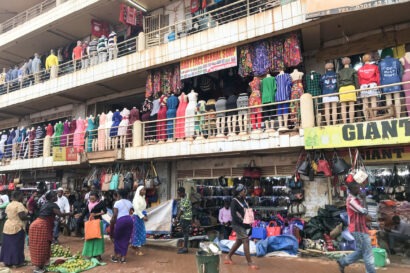What is the connection between taxation and more open societies that the British aid programme aims to support?
In long-term historical perspective, it is very close. The societies that enjoy the most open, democratic and accountable government are also those that tax the most – and spend the most on making life better for their citizens. This is no mere coincidence. Where governments are more open and trusted, citizens are more likely to support and pay taxes. And where states tax more, and more openly, taxpayers are more likely to demand effective services in return.
But how do we get to that happy state? More precisely, how can British aid to tax systems in low-income countries be designed to promote more open societies? We certainly know what to avoid: an emphasis on collecting more revenue at all costs, and bringing as many people as possible into the tax net without adequate attention to the need for fairness, equity and transparency. Existing tax systems in low income countries often involve coercion, corruption, complexity, and visible unfairness. A focus only on raising more revenue in such settings is almost guaranteed to alienate citizens and businesses, to exacerbate distrust of government, and undermine the potential for longer-term improvements in revenue raising.
Taxing more, taxing better
What is needed is an approach that combines a focus on raising more revenue with a focus on raising revenue better – that is, on raising revenue in ways that promote more cooperative and trusting relationships between citizens and their governments. We have some excellent guiding principles, validated by history and experience, summarised in a recent paper from the World Bank. Governments that wish to build tax systems that are fair and effective, and are seen to be so by taxpayers and citizens, need to maintain a balance between three lines of action:
- First, they need to enforce existing rules and ensure that tax dues are paid. This is not just a matter of preventing individual taxpayers from back-sliding. Belief that other people are following the rules makes every taxpayer more willing to pay their share. That is especially true if those ‘other people’ are the wealthy and well connected.
- Second, they need to do everything they can to make it easier for taxpayers to comply, through for example simplifying rules and procedures, and providing useful education for taxpayers. Recent research shows that small-scale African taxpayers are often enmeshed in complex tax administration procedures that they simply do not understand and that well-directed taxpayer education increases compliance.
- Third, governments need to make themselves more trustworthy in the eyes of their taxpayers. That again means enforcing the rules on everyone. It also means, among other things, making the fiscal system more transparent, accounting properly for the taxes that are collected, and spending them in ways that command broad support. Taxpayers are more compliant if they know that governments are using the money for purposes of which they approve – or, better still, where they have a say in how revenues are spent.
Striking the right balance
The challenge, for national policymakers and for the British aid programme, is to work out how to achieve the right balance in particular countries at particular times. The “right” strategy and focus will vary across countries. But we need also to question whether Britain and other aid donors currently have the appropriate overall balance. It is possible that the international community has in recent years been putting too much emphasis on the need for governments of low-income countries to collect more revenue in the short and medium term, and not enough on the need to tax better by developing the attitudes and practices that will create an effective – and fair – revenue system in the longer term.
The Third International Financing for Development Conference, held in Addis Ababa in 2015, was a significant milestone. Encouraging and supporting the collection of more taxes was the headline theme of the Conference, and of the subsequent Addis Tax Initiative, with aid donors and the international community playing a driving role. There was, in turn, significant debate about the potential value of setting specific revenue targets for low-income countries. Before the Addis meeting, we contributed to a blog that argued strongly against setting precise targets. It is not that we are opposed to more revenue in principle. To the contrary, we welcome it. But it needs to come as part of a package of mutually supportive developments, that will in turn contribute to more open societies.
Two of the specific objections we raised to precise revenue collection targets are highly relevant to the open society goal. First, existing tax systems in low-income countries are often highly regressive. A simple emphasis on increasing revenues could leave some poor people worse off, and shift the distribution of income further in favour of the rich. Second, national tax administrations often lack transparency and accountability to taxpayers, and focus on taxing what they can tax, rather than ensuring equitable enforcement among all taxpayers (and elites in particular). In these contexts, focusing solely on increased collection risks generating resentment and undermining the long-term objectives of increasing trust and quasi-voluntary compliance (book) on the part of taxpayers. On a positive note, there are signs of these concerns beginning to get greater attention – perhaps most notably with an expanded emphasis on equity and accountability in the new declaration from the Addis Tax Initiative.
In sum, improving the quality of tax systems can and should go hand in hand with a broader commitment to the promotion open societies. In the short term, emphasising principles of fairness, equity and transparency is likely to be a more sustainable and effective path toward improved revenue collection, by fostering greater popular trust and support. In the longer term, tax systems that are unfair, exclusionary and opaque are likely to be major obstacles to the construction of accountable, transparent and democratic governance – whereas more inclusive approaches to taxation have the potential to foster more cooperative relationships between citizens and governments.



